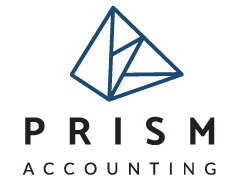The Main Residence CGT Exemption has been around since Capital Gains Tax introduction in 1985. It is one of the most generous tax concessions, which allows home owners to disregard all or part of capital gain arising from disposal of their home if certain conditions are satisfied. Most home owners are aware of the existence of the Main Residence exemption, however the complex rules regulating its application are not very well understood.
Often, taxpayers do not realise that certain events and decisions they make can have significant tax consequences. Below are some examples of common scenarios where the Main Residence Exemption may not be available in part or in full.
1. You were renting part of your main residence via Airbnb
If you rent part of your main residence property to generate income, whether on long-term basis or through shared economy sites, such as Airbnb, you will no longer be eligible for full CGT Exemption.
You are only eligible for partial CGT Exemption, which is calculated on pro-rata basis based on the proportion of the floor area of the house that was used to produce rental income and the period it was available for rent. The same apportionment applies if you use part of your main residence for any other income producing purposes (for example, as a place of business).
Can the property rented on Airbnb be exempt under Six Year Rule?
The Six Year Rule allows you to continue to treat your property as a main residence for the purpose of CGT Main Residence Exemption after you move out if it is used for income producing purposes (e.g. as a rental property). If the property is not used for income producing purposes, you can continue treating it as your main residence indefinitely. If you make this choice, you cannot treat any other property as your main residence, except if you are changing main residences. The rule is contained in section 118-145 (Absences) of Income Tax Assessment Act 1997.
For the rule to apply, the dwelling first of all has to cease being your main residence. That is, you have to take up residence somewhere else before you are eligible to make this choice. It may seem counter logical but this is how the law operates. If you are still living in the property as your main residence and rent out a spare room, that part will not be covered by the Absences rule.
It should be noted that if you start using your main residence to produce assessable income for the first time, provided the property would have qualified for 100% main residence exemption if sold just before that first use occurs, you are taken to have acquired it at that time for its Market Value (if fist use occurs after 7.30 pm on 20 August 1996). The effect of it is that CGT cost base will be reset to Market Value at the time of the first use.
2. Property is not owned by an individual
Main Residence Exemption is only available to individuals (which includes individual partners in a partnership). The individual must have an ownership interest in the property (this can include a license or right to occupy the property under a lease). If the ownership interest in the property is held in the name of a company or trust, main residence exemption cannot be used to disregard capital gain in respect to that interest.
Further, for the main residence exemption to apply, the individual must not be acting in a capacity of trustee of a trust. The exception to this rule, subject to certain conditions being satisfied, is when the property is owned by a Special Disability Trust and is used by the principal beneficiary as a main residence.
Special rules also apply if the individual is a trustee or a beneficiary of a deceased estate.
3. You are a foreign resident at the time of the CGT event
Foreign residents are no longer able to access the CGT Main Residence Exemption. The law has recently been changed to deny Main Residence Exemption to taxpayers who are foreign residents for tax purposes at the time when CGT event happens to the property unless certain life events occur within 6 year period of you becoming a foreign resident.
Transitional provisions were in operation until 30 June 2020 allowing foreign residents to access the CGT exemption if they disposed their main residence on or before 30 June 2020, provided they continuously held the property from immediately prior to 7:30 pm (AEST) on 9 May 2017 until the time of disposal.
It should be noted that the changes in tax law denying main residence exemption do not apply to temporary residents.
See: CGT Main Residence Exemption for foreign residents has been removed.
4. The dwelling subject to main residence exemption is destroyed
Main residence exemption applies to post-CGT land situated immediately under the main residence dwelling and can extend to adjacent land and adjacent structures provided they are used primarily for private or domestic purpose in association with the dwelling. The total land size, including the land immediately under the dwelling, must not exceed 2 hectares limit. The extension only applies if the same CGT event happens to the dwelling and its adjacent land and structures.
There are a few exceptions to this:
Involuntary disposals.
You can choose to apply main residence exemption to the land if the dwelling was accidentally destroyed (e.g. as a result of a natural disaster) and you did not build another dwelling to replace it.
Compulsory acquisition of the land.
You can disregard a capital gain or capital loss you make from a compulsory acquisition that happens only to the adjacent land and structures if certain conditions are satisfied.
“CGT Building concession”
If you demolish your house to construct a new one on the vacant land to be used as your main residence, you may be eligible to apply a so-called Building Concession (s. 118-150 of ITAA 1997). Building Concession allows you to treat the land on which your residence was built as your main residence for a maximum period of 4 years provided you meet the following conditions:
a) You must move into the new dwelling as soon as practicable after the work is finished
b) The dwelling must continue to be your main residence for at least 3 months.
If the 4-year period is exceeded, partial exemption may be available. The Commissioner has a discretion to extend the 4-year period.
However, if you demolish your house and sell your property as a vacant land, or if you construct a new building and do not make it your main residence, or otherwise fail to satisfy the required conditions, the main residence exemption may not be available at all.
In certain circumstances, demolishing your main residence dwelling may result in capital loss on destruction of the asset (C1 event), which will have to be disregarded under main residence exemption. Fortunately, as has been confirmed by the ATO in ID 2002/633, if no capital proceeds are paid on destruction and if the building was not a separately acquired asset with its own cost base, capital loss will not happen. In such case, the costs will be absorbed in the cost base of the land.
5. Adjacent land or structure sold separately from main residence dwelling
As was mentioned earlier, the main residence exemption extends to adjacent land and structures if they are subject to the same CGT event as the main residence dwelling. The main residence exemption will not apply to adjacent land and adjacent structures if they are sold separately from the dwelling. For example, if you sell a vacant block of land, a garage or a storage shed separately, the exemption will not be available.
Care must be taken if you subdivide and develop land to sell it for profit. The transaction is likely to be viewed as profit making undertaking, which means that the profit on sale will be assessed as ordinary income rather than as capital gain and no CGT discount will be available.
These are only some examples of common CGT traps. There are many other factors that may affect your eligibility to access the main residence exemption and other CGT concessions. Due to the significant value of the main residence exemption and some practical issues arising on application of CGT law, it is important to seek help of a qualified professional before making decisions involving your main residence.
Need Help?
Do you need assistance with determining eligibility for Main Residence Exemption or any other CGT Issue? As a Capital Gains Tax Specialists, we are able to help!
Send us an enquiry or call our office for a confidential discussion of your matter.
Disclaimer: All the information provided on this website is of general nature and does not constitute tax, legal or financial advice. It does not take into account your personal circumstances and is not intended to replace consultation with a qualified professional.



